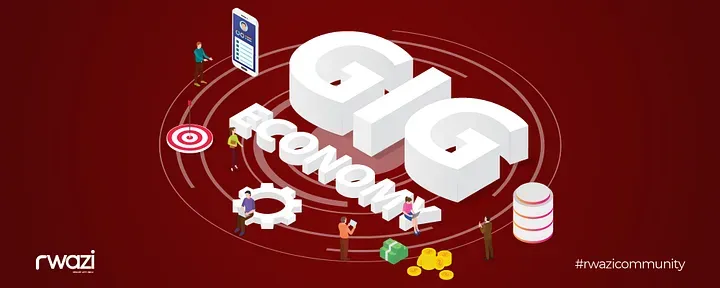Can You ‘Gig It’?

The term ‘gig economy’ is something that has been trending for a while, especially during and after the COVID-19 pandemic. If you’ve been curious about it, then voila! You are in the right place!
The gig economy has been around for ages. The term ‘gig’ in ‘gig economy’ dates back to when artists and musicians were paid for a particular musical event with no guarantee that they would get to perform regularly. In the same light, there have always been earlier forms of work that were marked by temporary on-demand labor. Even though the gig economy has evolved and changed, it still involves work! What is new here is that the work process exists over the internet. The term ‘gig economy’ as used in this blog captures economic transformation in which work is available on short term contracts or freelance work that happens through, via and on digital platforms as opposed to traditional jobs or regular employment.
It has also been highly enabled by the recent surge in technology and digitization.
Who can tap into the gig economy? Everyone. However, there are some pre-requisite factors. At the top of the list are skills; writing, software developing, graphic designing, copywriting, digital marketing, to mention but a few. So, do you have skills to offer? Flexibility, time and availability are key as well. Can you ‘gig it’? Only if you can deliver, and overtime have good reviews and reputation. From a few studies, it is noted that many people who tap into the gig economy desire flexibility and work-life balance that does not often come with regular employment. There are many perks of the gig economy on both the side of the worker and the employer. As the worker, you get to achieve work-life balance and perform tasks that fit right into your schedule. You also don’t have to be stuck in a ‘9–5’ job that you hate. On the side of the employer, many get to cut costs associated with having full-time employees; like providing training, office space, health insurance and other allowance benefits, responsibility for their employees, among others. The biggest perk for employers is they get to choose the best person fit for the job from a huge pool without having to contract experts that they would have part with a good sum, to hire for projects.
However, those involved in the gig economy are often not assured of stable income and may not necessarily grow in their fields of work. As much as the ‘gig economy’ is dominated by the arts and technology sector, we hope it will gradually evolve to include those in science.
If you’re wondering if Rwazi is part of the gig economy, the answer is yes and absolutely! We provide data collection gigs to young people across Africa. Now just to slightly interrupt your reading, we announce that we have the Rwazi Mixer Virtual event coming up on the 25th & 26th of March, where the ‘gig economy’ will be a focal discussion. We’ve partnered with experts involved in the job recruitment of especially young talented people across Africa; Jobberman Nigeria, Waape, The Room, Tech Talk Africa and Kredible Pro. This, you don’t want to miss! Sign up here and secure your spot.
Will the ‘gig economy’ supersede the traditional employment system? What is the future of the gig economy? What next? Who stands to gain, or lose? All these questions and many more are still up for discussion and debate. We can’t wait to have you at the event!
Written by Cynthia.A.Mugambwa.
Rwazi





